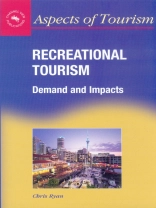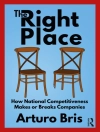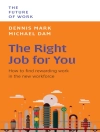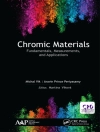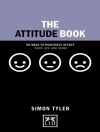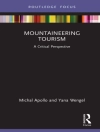Chris Ryan, as editor of Tourism Management, the author of several books and a researcher with an international reputation, has revisited his book, Recreational Tourism, after a gap of more than ten years. This new edition is an appraisal of that which is still thought to be valid, but with a significant updating in the light of new research. The structure of the book has been slightly changed to better reflect, not only current thinking, but the nature of existing texts and the greater degree of specialisation that now exists in the tourism literature. The book is primarily concerned with the determinants of tourism demand, the implications of that demand, and the problems posed for those who, in whatever capacity, seek to manage tourism at the destination level. After a new chapter that presents a history of tourism where the discerning reader can see that which is old and that which is new, the rest of the book analyses social, economic and psychological determinants of demand and discusses the broad aspects of destination change and the challenges presented to those responsible for managing such change. The book represents a learned introduction to the subject, a review of the developing literature and thinking that can be classified as broadly postpositivistic. In a curious manner it represents a return to the conventional, but within a new awareness of competing interpretations of one of the leading economic drivers of the new millennium.
Table des matières
Preface
1 A History of Tourism in the English-Speaking World
2 The Economic Determinants of Demand
3 The Social Determinants of Demand
4 The Psychological Determinants of Demand
5 The Tourist Experience
6 The Tourist Resort Zone
7 The Economic Impacts of Tourism
8 Tourism Impacts on the Environment
9 The Social Impacts of Tourism
10 Concluding Words
References
Index
A propos de l’auteur
Chris Ryan is Professor, BUU China-New Zealand Tourism Research Unit, University of Waikato Management School, New Zealand. His research interests include tourist behaviour, intention and perception.
